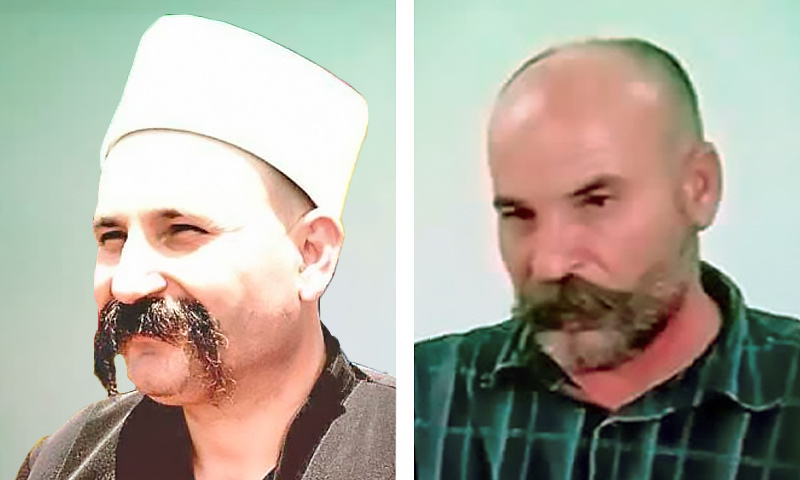Wafed Abu Trabeh, born in 1969, was not an ordinary personality in Sweida and his stay in the governorate was marked with uniqueness, introducing himself to the surrounding as an educated “man of profession,” who managed to achieve a perceptible effect on his society.
On August 7, the Syrian regime announced the death of “Wafed Abu Trabeh,” the only witness to the assassination of Sheikh Wahid al-Balous, after he was arrested by the Syrian regime’s “Mukhbarat,” security intelligence, accusing him of murdering the sheikh and broadcasting his confession on the official Syrian television.
The death incident was announced informally through a letter directed from the Second Military Filed Court to the Civil Registration Department in Sweida, informing it that the person mentioned has “passed away” in May 2016. The letter also indicates a death due to normal causes, attributing the delay in revealing the news by saying that “the circumstances were inconvenient.”
The family of “Abu Trabeh” refused to have a funeral and held strong to his innocence of the charges against him, saying that they knew of his death on August 10 through social media platforms, but they have not so far received a detailed medical report about his death causes or his body.
Harassment Prior to the Revolution
Through connections, prior to the revolution, “Abu Trabeh” became the government and security agents’ first chosen destination to maintain their vehicles, which triggered the community to accuse him of affiliation with the security forces. He then run for the local council’s elections and won though he was note supported by the “Ba’ath party’s lists.”
“Abu Trabeh” kept working as an employee in the municipality till the break out of the Syrian revolution in 2011. He was harassed repeatedly for his opinions and for combating corruption. His resignation was also refused, and his car was shot at instead. According to this, he dedicated all his time for relief work and serving internally displaced people.
2013 Was a Turning Point
Following the “Free Army’s” entrance to Sweida in 2013, under the command of dissident Lieutenant Khaldoun Zeineddine and the battles continuity for several days, “Abu Trabeh” helped and facilitated for the military operations, which ended with the death Khaldoun and 20 troops from Sweida and Daraa.
Following this, “Abu Trabeh” was forced to leave the governorate illegally. Back then, it was said that he traveled to Jordan, then Lebanon and finally to Turkey, where he opened an auto maintenance shop. However, the regime kept promoting the idea that he was yet in the area of Lajat with the “Free Army” fighters.
In the ensuing period, “Abu Trabeh” entered Sweida two times, the first was at the end of 2014 and the second three month prior to the assassination of al-Balous, for “Rijal al-Karama” (Men of dignity) movement and its ability to save persecuted people within the borders of Sweida inspired hope in “Abu Trabeh,” who wished to stay among his relatives.
The men of the neighborhood, where “Abu Trabeh” was based, testified that he was at home, at the moment of the explosion that targeted al-Balous procession, September 2015, which contradicts with his confessions on the official Syrian Television that he was in the mountain at the time.
His family said that he left the house for the first time, following the assassination incident, at ten PM after the largest statue of Hafez al-Assad, in the middle of the governorate’s main square, was downed, giving the people a hope that this is the end of Assad’s regime in Sweida.
Days after the explosion, “Abu Trabeh” went to the al-Balous guest house to hide there, when the city appeared to be getting its sense of order back and the regime’s forces started to regain control over it.
Some young people asked him to accompany them to Sheikh Rakan al-Atrash’s guest house, alleging that the later demanded seeing him. However, “Abu Trabeh,” did not reach the house; he was, rather, surrendered to “Kamal Janoud” militia, affiliated with the military security, trapped by Kamal’s nephew, who used to fight for “Mashaykh al-Karama,” to be exposed as a traitor and be expelled from the faction.
After al-Balous’ assassination, Sweida witnessed a popular riot that paralyzed the institutional action in the area. The regime was about to come to an end, according to what journalist Ahed Murad, from Sweida, has told Enab Baladi.
Murad Added: “Abu Trabeh is the only witness that the Syrian regime’s narrative about the two explosions is a lie, for he was forced to provide a fake confession on the official television.”

